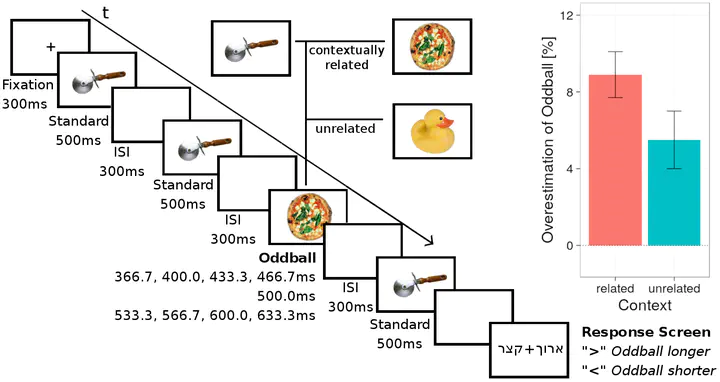
Abstract
Our sense of time is prone to various biases. For instance, one factor that can dilate an event’s perceived duration is the violation of predictions; when a series of repeated stimuli is interrupted by an unpredictable oddball. On the other hand, when the probability of a repetition itself is manipulated, predictable conditions can also increase estimated duration. This suggests that manipulations of expectations have different or even opposing effects on time perception. In previous studies, expectations were generated because stimuli were repeated or because the likelihood of a sequence or a repetition was varied. In the natural environment, however, expectations are often built via associative processes, for example, the context of a kitchen promotes the expectation of plates, appliances, and other associated objects. Here, we manipulated such association-based expectations by using oddballs that were either contextually associated or nonassociated with the standard items. We find that duration was more strongly overestimated for contextually associated oddballs. We reason that top-down attention is biased toward associated information, and thereby dilates subjective duration for associated oddballs. Based on this finding, we propose an interplay between top-down attention and predictive processing in the perception of time.
The temporal oddball effect – that is, the phenomenon that the duration of an oddball stimulus is overestimated when compared to the duration of a standard stimulus which is repeatedly presented in a stream – is thought to be driven by prediction errors. Suprisingly, and in contrast to this predominant hypothesis, we found that a more predictable oddball object (e.g., a pizza following a pizza cutter) is overestimated to a larger degree than a fully unpredictable oddball (e.g., a rubber duck following a pizza cutter). How could this be explained?